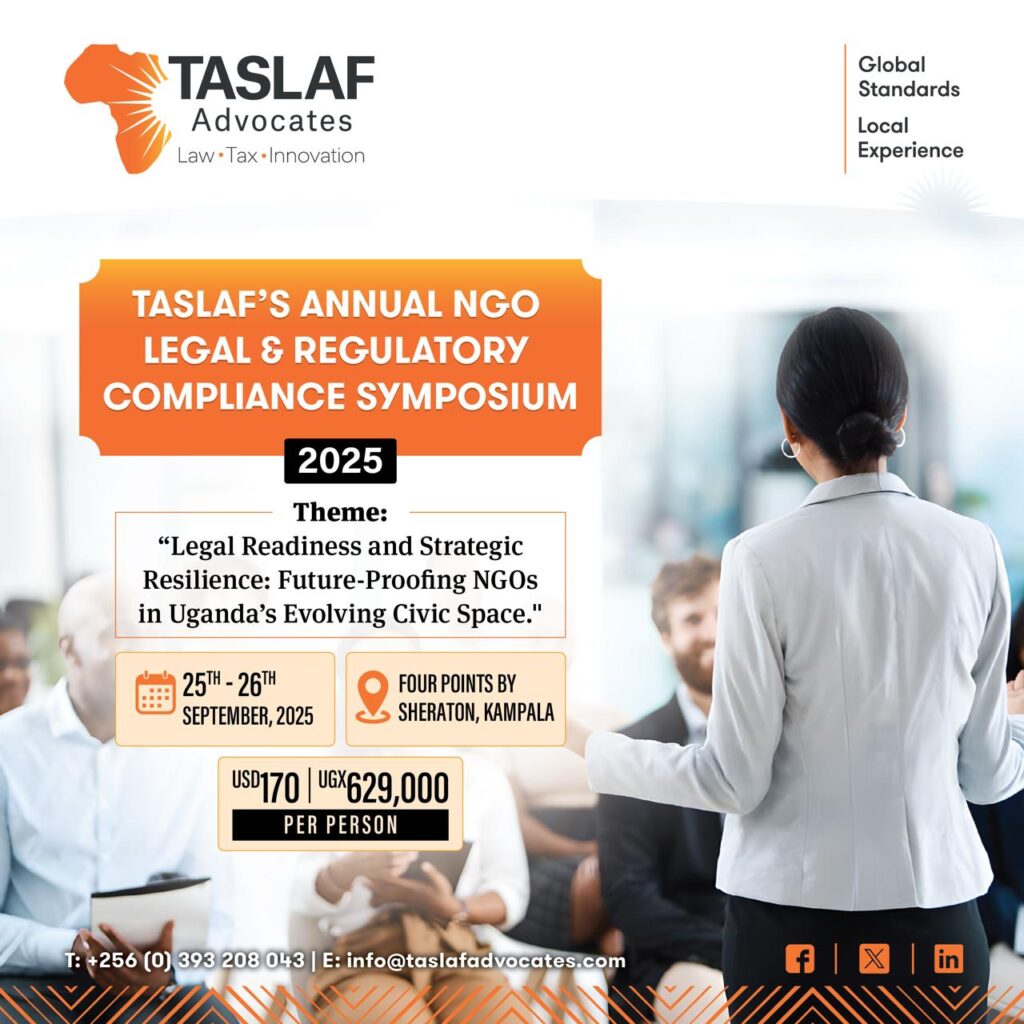What are annual returns?
An annual return is a yearly snapshot of the NGO’s activities to the NGO Bureau. The law requires all Non-Governmental Organizations to file and submit an annual return to the NGO Bureau. The return provides the Bureau with information regarding management, finances and activities of the NGO for a given year. This enables the Bureau to detect any non-compliance with the law and take corrective measures where necessary.
This alert explains what are annual returns, what makes up an annual return, what you need to file annual returns, when to file annual returns and consequences for not filing annual returns.
What makes up an annual return?
An annual return by an NGO to the NGO Bureau consists of:
- A copy of the audited books of accounts from a Certified Auditor(s).
- A copy of the Annual Report(s) of all activities undertaken by the NGO.
- Minutes of the General Assembly or governing body meeting which considered and approved the Audited Accounts & Annual Report and a signed attendance list for all persons who attended the meeting.
- A duly completed form R (the form for annual returns). This form can be downloaded from the website of the NGO Bureau. The following information is required to complete form R:
- The name of the Organization
- The period covered by the return
- Date of the annual board or general meeting of the NGO for the period covered by the return
- Number of members of the NGO
- Full names occupation and addresses of the officers of the NGO
- Any change in the name, constitution and rules of the NGO
- Any affiliation to an organization or group established outside Uganda
- The classes of people to whom its membership is open
- The sources of funds for the period covered by the return
- The total funds received for the period covered by the return
- The total estimates of income and expenditure for the current year
NB. Form R must be signed by at least two representatives of the NGO (these are usually directors).
What you need to file annual returns
- A cover letter addressed to the Executive Director of the NGO Bureau.
- A duly filled form R.
- A photocopy of the permit of operation.
- Proof of payment of UGX 50, 000.
- A copy of the audited books of accounts prepared by a certified auditor.
- A copy of the NGO’s annual reports.
- Minutes of the general assembly or governing body meeting which considered and approved the audited accounts and annual report and a signed attendance list for the meeting.
When to file NGO annual returns
Annual returns should be filed not later than six months after the end of an NGO’s financial year.
Consequences for not filing annual returns
An NGO that does not file annual returns cannot access any of the services provided by the NGO bureau. These include, renewal of operational permits, recommendations for work permits, recommendations to other institutions, replacement of certificates of registration and operational permits, certification of documents and complaint handling among others.
Failure to file annual returns amounts to non-compliance with the law. This can be relied on by the NGO Bureau to take corrective measures against the NGO, including suspending/revoking the NGO’s operational permit, closure/suspensions, among others.
Conclusion
Filing annual returns by NGOs is a key mandatory and recurring compliance obligation that the law imposes on all NGOs. In the past, lack of awareness has been used to explain failure to file annual returns. We hope that this simplified breakdown of the legal requirements will enable NGOs to comply with the law.
Our Legal and Regulatory Compliance Team.

Stephen Tumwesigye
Managing Partner
M: +256 (0) 774 334 908
E: stumwesigye@taslafadvocates.com

Lynne Wells
Special Counsel
M: +256 (0) 774 643 240
E: lwells@taslafadvocates.com

Shadiya Uzama
Legal Associate
M: +256 701 810050
E: suzama@taslafadvocates.com

Faith Oluka
Regulatory & Compliance Associate
M: +256 (0) 778 980 861
E: foluka@taslafadvocates.com

Benjamen Ayongyera
Legal Associate
M: +256 778 512 680
E: bayongyera@taslafadvocates.com




